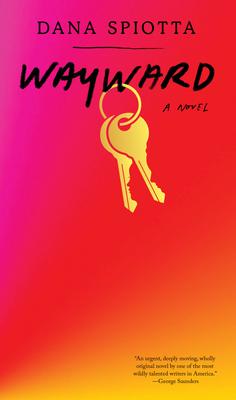November 12, 2021
Wayward, by Dana Spiotta
I recently read Dana Spiotta’s novel Wayward in one sitting, not necessarily because it was it was unputdownable, but because I’d chosen it for the Turning the Page on Cancer Readathon a few weeks back. And it turned out to be a perfect selection for such a thing, the novel utterly absorbing, although I read it kind of deliriously, now that I think about it. It’s a pretty intense novel with a whole lot to unpack, and so the affect of reading it all in one burst was a bit like being smacked in the head with a baseball bat, but in the very best way possible.
It’s a highly specific novel about something so many of us tend to speak about in general terms, namely what happened when the world went off the deep end in 2016. For Samantha Raymond—whose mother is ailing, whose daughter is coming of age, who suddenly finds herself unable to sleep at night—this surreal moment in the universe sends her life into a tailspin when she decides to leave her comfortable suburban home, and her marriage, purchasing a ramshackle historic home in a dodgy neighbourhood in Syracuse.
The first line of the novel: “One way to understand what had happened to her (what she had made happen, what she had insisted upon): it began with the house.”
“It began with the house” could well be the opening line to most novels that I love.
Wayward is a twisty, tricky novel, that’s also about mid-life, aging, about feminism, about white feminism, about cities, neighbourhood, community, motherhood, daughterhood, about notions of justice and what it means to lead an authentic life. As can be expected from the title, Sam’s pursuit of such a thing is not straightforward, usually ill-advised, and hers is a story of mistakes and wrong-doing, the inevitability of these, the impossibility of purity, of the possibilities of redemption.






